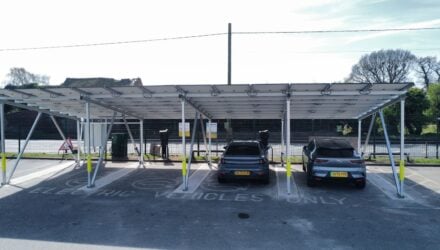
A New Year brings new strategies, planning and budgets for all businesses of all sizes in all industries. With a push on businesses to work smarter and more efficiently, this year is no different.
For businesses with larger fleets, trying to cut down on costs can seem daunting. However, fuel card provider fuelGenie, says that having a large fleet does not mean you have to take a hit on fuel costs.
According to RAC, as of the 1st January this year, average fuel prices are 121 pence per litre for petrol and 123.7 pence per litre for diesel. Considering that this is at its peak since late 2014, it’s important now more than ever to closely monitor your fleet and fuel costs.
fuelGenie is the expert when it comes to keeping fuel costs low for SME’s. The team share their top tips for the New Year on how to maintain a healthy and efficient fleet by managing fuel costs all year round.
1. Shop savvy – A recent survey conducted by Fleet News showed that pump prices were amongst one of the biggest challenges facing fleets in 2018.Whilst you can’t always predict how prices may change in the future, you can be smart with where you shop. Filling up at supermarket forecourts means you can benefit from fuel which is up to 3ppl cheaper on average.
2. Smart systems – In order to obtain an accurate account of mileage and costs, accurate GPS Technology, Telematics or Smartphone Apps can be used to help track the time used for business and private mileage. Implementing systems like these can help to clamp down on incomplete or late records of journeys as opposed to using a manual system, meaning that Fleet Managers can keep a close eye on exactly what is being spent.
3. Bad habits – Advising drivers on how they can tailor their driving behaviour can make a huge difference to fuel efficiency. Department for Transport figures state that you will use up to 9% more fuel driving at 70mph than you would at 60mph, and up to 15% more fuel than driving at 50mph. For businesses with larger fleets, vehicles can be on the road the majority of the working week, so consider offering drivers additional training and incentives to encourage efficient driving.
4. Tighten your choice list based on CO2 and MPG – By rewriting your choice list and by only choosing vehicles with low g/km CO2 levels and higher MPG figures you can make savings in not only fuel but in National Insurance and Benefit in Kind taxation.
5. Fuel card savings – by signing up to a fuel card like fuelGenie, not only is it free of charge, but also offers endless benefits for business users such as 24/7 reporting, no hidden fees, easy invoicing and access to over 1,350 supermarket forecourts.
Robert Pieczka, Managing Director of fuelGenie, said: “Fuel prices continue to rise and if they remain at these levels during 2018, fleet managers may be under significant pressure to find ways to reduce fuel costs back to budgeted levels. Our top tips aim to help cut down on total fuel costs and for their fleet all year round.”


















